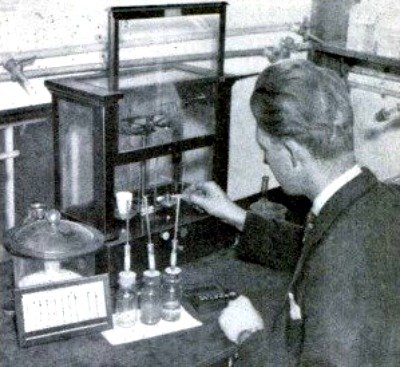Forensic Toxicology
According to The American-Board of Forensic-Toxicology (ABFT), forensic toxicology encompasses the measurement of alcohol, drugs and other toxic substances in biological specimens and interpretation of such results in a medicolegal context.
The American Academy of Forensic sciences (AAFS), notes that there are a number of specialist areas within the field, including postmortem toxicology e.g. the determination of the contribution of drugs or other chemicals to the circumstances of the death.
The AAFS also emphasises the collaborative nature of the subject which often sees the forensic toxicologist working in conjunction with law enforcement officers, forensic pathologists, other forensic scientists, and crime scene investigators.
Want To Study Forensics/CSI?
A toxicology report can provide key information as to the type of substances present in an individual and if the amount of those substances is consistent with a therapeutic dosage or is above a harmful level. These results can be used to make inferences when determining a substance's potential effect on an individual's death, illness, or mental or physical impairment. For example, the results of a blood analysis from a driver involved in a car accident can be used to determine if the individual was under the influence of drugs or alcohol.
New drugs are always being developed, which creates a constant need to design novel approaches for their detection. To rise to this challenge, new instrumentation is being used and new detection methods are constantly in development. (National Institute of Justice)
|
For a detailed introduction to the subject visit The Society of Forensic Toxicologists, Inc. (SOFT) website. The Society of Forensic Toxicologists, Inc. (SOFT) is an organization composed of practicing forensic toxicologists and those interested in promoting and developing the discipline. |
|
Click Here To Visit The Society of Forensic Toxicologists Website.
Toxicologist Calum Morrison Talks About His Life in Forensics
Poison Murders Solved
See following link to read a classic toxicology article from 1935.
Essential Reading
Description
This comprehensive text focuses on the major tenets of the subject, including an introduction to the discipline, fundamentals of forensic toxicological analysis, types of interpretations based on analytical results, and reporting from the laboratory to the courtroom. The book also contains appendices covering the principles of pharmacokinetics and pharmacodynamics, immunology and immunological assays, toxicogenomics, and case studies.
Readership
Upper level undergraduate and graduate students studying forensic toxicology and/or forensic chemistry, New scientists in forensic laboratories, including medical technologists and analytical chemists; reference material for practicing forensic toxicologists and expert witnesses called to testify.
See following link for full details.
Forensic Toxicology: Principles and Concepts
Recent Articles
-
All About Forensic Science
Nov 12, 24 03:05 AM
A forensic science website designed to help anybody looking for detailed information and resources. -
The Role of Forensic Evidence in Criminal Defense Cases
Sep 05, 24 03:38 AM
Article exploring five key roles that forensic evidence plays in criminal defense cases -
The Evolving Role of Medical Science in Forensic Investigations
Aug 06, 24 03:35 AM
Insightful article exploring the critical role of medical science in forensic investigations.



New! Comments
Have your say about what you just read! Leave me a comment in the box below.